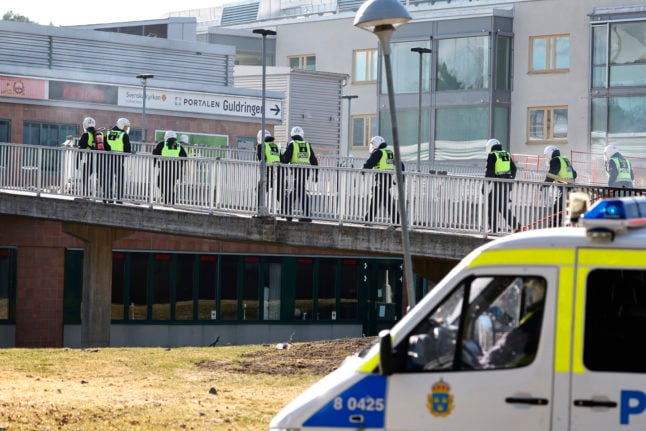The group behind the recent violent protests in Barcelona called for five further days of protests to cause maximum disruption in the run up to Spain’s general election.
Tsunami Democràtic, the mysterious organization that used social media to mobilize crowds across Catalonia in protest at the sentencing of Catalan separatist leaders announced five dates of action during November and December.
READ MORE: Catalonia: Who are 'urban guerillas' behind the protests?
Using Twitter to make the announcement, Tsunami Democràtic, called for a nationwide protest across Spain on November 9th, one day before the country goes to the polls for a general election.
The group also called for action on November 11th, 12th and 13th but said it would be a “surprise”.
? Guardeu dates:
9/11 [a tot l'estat]
11/11 [lloc sorpresa]
12/11 [lloc sorpresa]
13/11 [lloc sorpresa]
18/12 [juguem a casa]— Tsunami Democràtic (@tsunami_dem) October 25, 2019
The final date of December 18 is when Real Madrid meet Barça in the rescheduled Clasico match, after the game was postponed last weekend during the protests.
This weekend will also see demonstrations in Barcelona.
On Friday evening at 7pm in Plaza Universitat, a protest has been called in support of students and the Catalan youth under the slogan: “If you touch our youth, you will find us on the streets. Freedom for political prisoners”.
Contra la repressió:
NI UN PAS ENRERE❗? Avui hem de tornar a omplir els carrers de Barcelona per fer front a la repressió!
?19.00h
?Plaça UniversitatÉs temps de #RevoltaPopular ?! Tothom al carrer!#CDRenXarxa pic.twitter.com/9ep2RrCJ83
— CDR Catalunya (@CDRCatOficial) October 25, 2019
On Saturday, October 26 in Barcelona’s Plaza de Sant Jaume, a group called “Hablamos” are calling for “dialogue and a solution to the Catalan conflict”.
Este sábado 26 de octubre nos concentramos en Plaza de Sant Jaume de Barcelona a las 12h para pedir cambio, diálogo y convivencia. Invitamos a toda la ciudadanía cansada de tanto ruido a acudir y llenar la plaza. Somos un país mejor que nuestros gobernantes. #Hablamos #Parlem pic.twitter.com/qLFs1xJZEf
— Hablamos? (@hablamos7O) October 22, 2019
Later that day, at 5pm, the Assemblea Nacional Catalana (ANC) an organization that seeks the political independence of Catalonia, are planning a demonstration on the Marina de la Carrer, “to march for independence”.
⚪️⚫️ BUSOS PER LA MANIFESTACIÓ A BARCELONA EL 26 D’OCTUBRE
Dissabte 26 d’octubre a les 17:00 h hi ha la manifestació unitària en contra de la sentència a Barcelona
Des d’ANC Conca de Barberà, organitzem busos per anar-hi.
✳️ ANC CONCA DE BARBERÀ pic.twitter.com/uqVzfHH04M
— ANC Conca Barberà ? (@ANC_Conca) October 25, 2019
The Referendum Defense Committees, (CDR), neighborhood groups set up in Catalonia to demand independence, continue to stage demonstrations across Catalonia with the slogan “we will continue on the street until there is no one left in prison”.
For the latest updates on disruption caused to public transport, roads and public places follow the Catalan emergency services Twitter feed.
Alerta #INUNCAT #ProteccioCivil
?Si teniu una segona residència en zones afectades pels aiguats i aquest #capdesetmana penseu anar-hi, abans consulteu aquests consells de @salutcat sobre seguretat alimentària
en cas d’aiguats i inundacions— Protecció civil (@emergenciescat) October 25, 2019
Since the escalation of tensions following the controversial sentencing of the Catalan leaders, the UK Foreign and Commonwealth Office (FCO) continue with a travel advice warning that “further gatherings and demonstrations are likely to take place” and that visitors “should exercise caution in the vicinity of demonstrations as they may occur with little or no warning”.
This warning is echoed by the US Department of State, which advises visitors to “avoid the areas of the demonstrations”, “be aware of your surroundings”, “keep a low profile” and “notify friends and family of your safety”.
READ MORE:



 Please whitelist us to continue reading.
Please whitelist us to continue reading.
Member comments